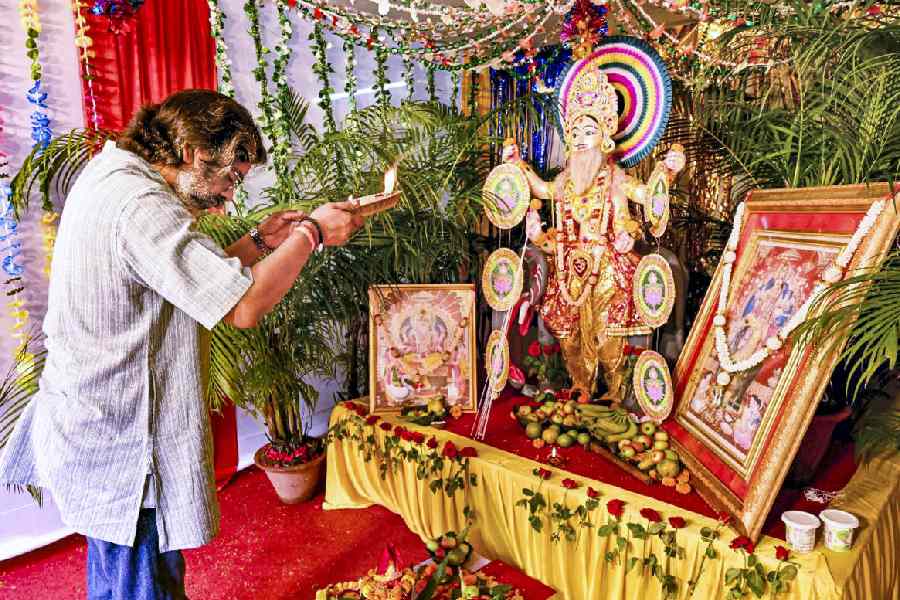Former Jharkhand chief minister Champai Soren's attempt to take credit for the initiative to include the Ho language in the Eighth Schedule of the Constitution was countered by chief minister Hemant Soren a few hours later accusing “Centre of sleeping over the issue for four years”.
Champai on Monday wrote a letter to Union home minister Amit Shah, which he shared on his social media handle, late at night. In the letter, he demanded the inclusion of the Ho language in the Eighth Schedule of the Indian Constitution.
The letter mentions that Ho is one of the most ancient languages belonging to the Austro-Asian linguistic family with a specially designed script called Warang Kshiti Lipi.
In the letter, Champai has written that the tribal Ho society has been demanding for years for their native language to be included in the Eighth Schedule of the Constitution. For this, a protest demonstration was also staged by the Adivasi Ho Samaj Yuva Mahasabha at the national level on September 14 at Jantar Mantar in New Delhi.
“A special request has also been made on behalf of the Mahasabha to complete the required formalities for this purpose,” the letter adds.
“I request with full hope that in the interest of the society, you would like to take appropriate and necessary action to include the ‘Ho’ language (Warang Kshiti Lipi) of our Adivasi Ho society in the Eighth Schedule of the Indian Constitution. For this, the people of our society will always remain grateful to you,” Soren’s letter states.
On Tuesday morning, Hemant Soren, reposted on his personal social media handle a post of JMM questioning “when will the anti-tribal central government awake from its sleep on the letter of Hemant Soren written four years back about the inclusion of tribal languages (Ho, Mundari and Kurukh, spoken by Ho, Munda and Oraon communities respectively) in the Eighth Schedule of the Constitution”.
It also posted the letter written by Hemant Soren to Shah on August 21, 2020, informing that Jharkhand has already recognised them as the second official language of the state and is committed to their development.
Among the four major tribal languages of the state, Santhali, which is also spoken by the Santhal community in other states such as Bengal, Odisha and Assam, was included in the Eighth Schedule in 2003.
“Since these languages have a rich ethnic and phylogenetic vocabulary, their inclusion in the Eighth Schedule will create an opportunity for these languages to develop and flourish and contribute in enriching the composite culture of our country,” the letter had added.
“Inclusion in the Eighth Schedule gives a language a national status that helps in a number of ways. Once a language is included in the Eighth Schedule, the Sahitya Akademi also recognises it and promotes literary activities in that language, besides giving awards that helps in creation of good and recognised literary works,” said Ratan Tirkey, a tribal leader and former Tribal Advisory Council (TAC) member.










